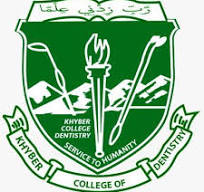COMPARISON OF ORAL HEALTH RELATED KNOWLEDGE, ATTITUDE AND PRACTICE AMONG SCHOOL CHILDREN, FROM 6 TO 12 YEARS, OF RURAL AREAS WITH NON-SCHOOL CHILDREN OF DISTRICT MALAKAND, KHYBER PUKHTUNKHWA
DOI:
https://doi.org/10.33279/jkcd.v6i02.220Keywords:
Oral healthy, School children, Non School Children, Knowledge, Attitude and PracticeAbstract
Objective: The objective of this study was to assess the comparison of Knowledge, Attitude and Practice about oral health among school and non-school children, from age 6-12 years, in District Malakand.
Material and Methods: A representative sample of 400 children, 200 school and 200 non-school children, was drawn from 4 villages. Self administrated questionnaire was used as a tool for data collection.
Results: The results of this study show that school children had better Knowledge, Attitude and Practice about oral health than non-school children, although overall level of Knowledge, Attitude and Practice was low in both school and non-school children group. Teachers were the main source of information in school children, while in non school group others like friends and community were key informants. Systematic community-oriented oral health promotion agendas are required to enhance oral health Knowledge, Attitude and Practice of the children.
Conclusions: School children have better knowledge, attitude and practice about oral health than non-school children. The study revealed that parents played a key role to create awareness on oral health among children.
Downloads
Published
How to Cite
Issue
Section
License
Copyright (c) 2016 Muhammad Naeem, Andaleeb Umar, Shazia Makhdoom, Sajjad Ahmad

This work is licensed under a Creative Commons Attribution-NonCommercial-NoDerivatives 4.0 International License.
You are free to:
- Share — copy and redistribute the material in any medium or format
- Adapt — remix, transform, and build upon the material
- The licensor cannot revoke these freedoms as long as you follow the license terms.
Under the following terms:
- Attribution — You must give appropriate credit , provide a link to the license, and indicate if changes were made . You may do so in any reasonable manner, but not in any way that suggests the licensor endorses you or your use.
- NonCommercial — You may not use the material for commercial purposes .
- No additional restrictions — You may not apply legal terms or technological measures that legally restrict others from doing anything the license permits.









